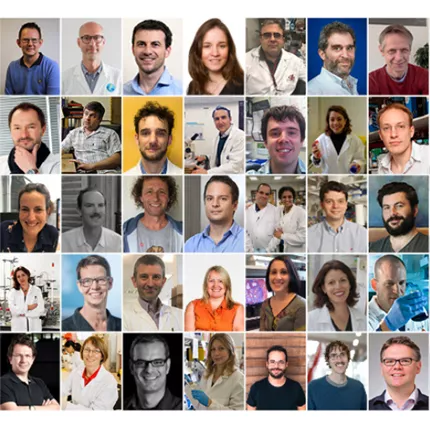Atchoo! Can understanding allergic reactions lead to new cancer treatments?
Project aim
Professor Sophia Karagiannis and her team are investigating if IgE, a type of antibody that has not been used in cancer therapy yet could improve the effectiveness of immunotherapy.
Hope for the future
In 2022, there were just over 330,000 cases of the skin cancer melanoma globally. In recent years, immunotherapy using our body’s own defense system of antibodies has provided a new treatment option for people with melanoma. However, half of patients with melanoma currently do not respond to this therapy and we don’t understand why. Professor Karagiannis’ project hopes to find new solutions to treatment resistance and boost immunotherapy, helping more melanoma patients.


Meet the scientist
As well as her career as a cancer immunologist, Professor Karagiannis is married and a mum of two sons, a strong supporter of women and girls in science and medicine, and a firm believer in the power of friendship, mentorship and collaboration in all aspects of personal, family and working life. She believes that by working together across sectors and disciplines there is nothing we could not accomplish and no obstacle that we cannot overcome.
The science
Antibodies are protective proteins present throughout your body that your immune system produces. They each have a very specific shape that can bind to a specific threat, like a key that fits perfectly into a lock.
In recent years cancer drugs made with antibodies have revolutionized cancer treatment but they only work a limited number of patients and we still don’t understand why. These drugs are based on one type of antibody, called IgG. Humans, however, have 9 different types of antibodies in total, and Professor Karagiannis wants to find out if another type of antibody, IgE, could also be adapted for cancer treatment. IgE antibodies are involved in allergic reactions, so you can thank them for a runny nose and itchy eyes if you have hay fever. In this project, they want to study the structure of IgE, to research the most effective way of making IgE useful in cancer therapeutics.
This project is truly collaborative, connecting researchers across the country. Professor Karagiannis at King's College London is working together with Professor Ungar at the University of York, Dr Wagner at Queen’s University Belfast and the biopharmaceutical company Ludger Ltd, to bring together the expertise needed to tackle this. The only way we can unlock new cancer cures is by working together.
 Professor Sophia Karagiannis
Professor Sophia Karagiannis
Together, we are looking at how this knowledge can help us to design better therapies and preventive approaches. These efforts could only be undertaken, and outcomes could only be accomplished, if we work together through international links
Become a Curestarter and help us fund the next pioneering research project.
Our research projects wouldn’t be possible without the funds we receive from people like you. £37 pays for an hour of research and every hour brings us closer to new cures.
Support Us





